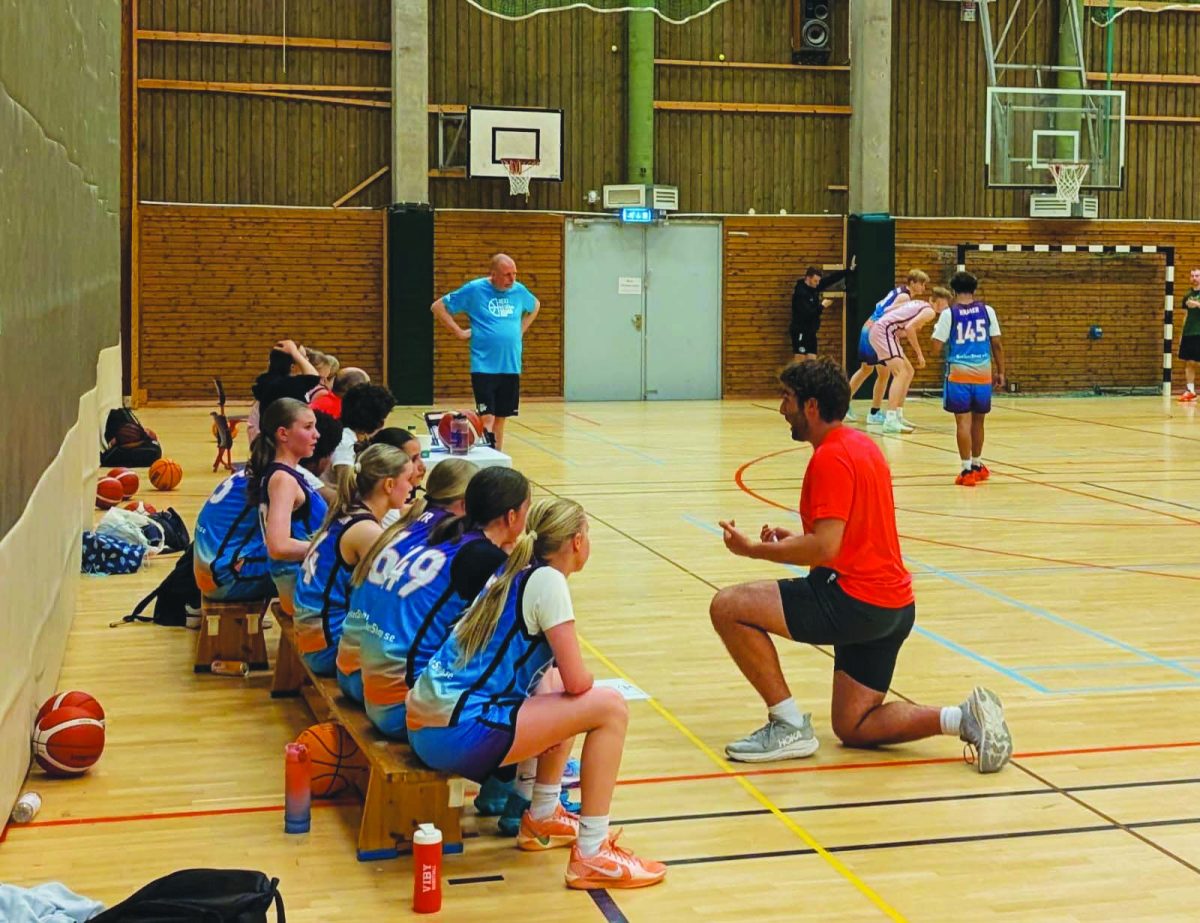
Photo Courtesy Basketball Embassy
Genender offers coaching advice on the sideline
As a natural athlete, Ostella began playing other sports in addition to hockey, including baseball, golf and skiing. During his seventh-grade year, Ostella began to feel the pressure of his rigorous athletic schedule.
“I was playing a sporting event like every single day of the week,” Ostella said. “There were a lot of conflicts where I had to miss one sport and go to another.”
Despite hockey being his favorite sport, the time consumption and harsh coaching made hockey feel more like a chore than a passion.
20 minutes to drive there. 20 minutes to get dressed. An hour of dry land conditioning off the ice. Another hour on the ice. 20 minutes to undress. 20 minutes to drive back and then shower.
Four-hours of practice.
Four practices a week. 20 games per season. Nine-month-long season. Traveling around eight times every year for tournaments.
Hockey wasn’t just a sport; it was becoming his life.
On the other hand, baseball had only a three month season that practiced at St. Mark’s.
This grueling schedule made Ostella’s life hard to handle. To add insult to injury, Ostella’s Ukrainian coach would repeatedly cuss and yell at him for missing practices. One thing that his coach said stuck with him:
WHaving to practice constantly while having his coach tell him he wasn’t good enough sent Ostella over his limit, deciding to quit travel hockey and focus more on baseball.
Hockey wasn’t over for Ostella though. He joined the Highland Park high school club team, a better alternative to his time-consuming travel team. Already friends with the players on the HP team, Ostella fit in easily to the new community.
From locker room conversations or the anticipation before a game to blasting celebratory music after a big win or going to eat as a team, the new team was a huge improvement over his last.
Each week became less stressful than the last. Two practices, not five. More time to deal with schoolwork and baseball.
Most importantly, he began having fun again.
“(The Ukrainian coach) made going to practices and games feel like a chore, versus now, I feel like it’s more fun,” Ostella said.
Despite not enduring the same nonstop training of hockey as before, he still feels capable of keeping up with his teammates at a high level. Regardless of his previous struggles with hockey, he believes that his experiences not only made him a better player, but a better person.
“There’s a lot of skills that go into hockey,” Ostella said. “You need to have strength. You need to have speed. You need to have good passing. You need to have good shooting. You need to have a good hockey IQ. You need to have good agility. Physicality. So there’s a lot of traits that you need to have to be a good hockey player.”